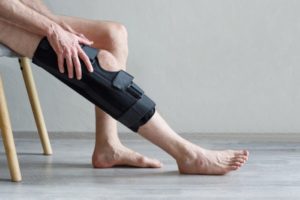
Once you experience an altercation, you may be required to deal with the legal consequences of your actions. Assault and battery are issues that are taken seriously and are treated as criminal, not civil, cases. However, if you were on the receiving end of an attack, then your attorney can argue that you were defending yourself.
Personal injury cases are separate from battery or civil assault, which is considered to be an intentional tort. Before you file a lawsuit against your assailant, speak to a personal injury lawyer. They’ll find proof to back up your claim. Find out more by contacting a Jacksonville Personal Injury Lawyer today for a free consultation.
What Is Considered Self-Defense?
When you have a reasonable belief that someone else’s behavior is threatening, you can defend yourself against them. This action is justified when the other person is threatening to use force, uses force, or uses lethal force against you. In general, there are four aspects of self-defense. This includes an unprovoked attack, the threat of injury or death, a reasonable level of force used against you, and your response to injury.
When you are trying to prevent a deadly injury from happening to you or someone else, then you can defend yourself or the other person. In Florida, if someone is using deadly force against you, you have the right to stand your ground. You won’t be required to retreat if you feel threatened. This only applies if you have the right to be there and were not involved in criminal activity when threatened with deadly force.
The following are principles of self-defense:
- Imminent threat of harm – You believe there is a threat of immediate harm or death through another’s aggravated actions.
- Reasonable fear of harm – You perceive that someone is about to harm you and fear their actions.
- Imperfect self-defense – You were afraid of physical pain but it was not a reasonable response.
- Proportional response – Your defense and response to the other’s deadly force was of the same intensity as the attacker.
- Duty to retreat – You first tried to escape from the assailant.
- Castle doctrine – You were in your home when you were attacked.
In the state of Florida, there is no duty to retreat and you don’t necessarily require the castle doctrine. For example, you could have been threatened with imminent death at a grocery store.
What If The Plaintiff or Their Family Sues Me For Defending Myself?
Your attorney will likely represent your case as a situation of affirmative defense. The affirmative defense is when you have credible evidence that will remove any civil or criminal liability. This is even if you committed these acts. Basically, you reserve a justification or excuse that negates any liability for the actions raised by the plaintiff.
What If You Don’t Have a Legitimate Defense?
Under a legitimate defense, you are recognized as being threatened with harm and have a right to defend yourself. However, if you don’t have a legitimate defense, then your actions can be considered civil battery or assault. When you don’t have a legitimate defense, then you would receive criminal charges.
Imperfect Self-Defense
If an assailant was stabbed for slapping someone, this would be considered an unreasonable response. Self-defense would only work as a partial defense. In this case, the level of violence would be considered unreasonable.
Provocation
If the defendant first provoked the assailant in some way, then the defendant might not be able to plead self-defense. Emotional manipulation or egging someone on before they attacked you would also make this an imperfect self-defense case.
Illegal Activity
When the defendant is trespassing, they can’t plead self defense. For example, if trespassing on someone else’s property and the owner attacks them, the invader is in the wrong.
Speak To Personal Injury Lawyers
If you do not consult a personal injury lawyer about your injuries that resulted from self-defense, then you are missing out on getting proper representation. You don’t want the other party to make you seem like the villain, discrediting you or even making you feel guilty for your actions. When you get a legal team to back you up, you will have the confidence to proceed with seeking fair damages. Speak to legal professionals with experience in personal injury lawsuits and settlements.








